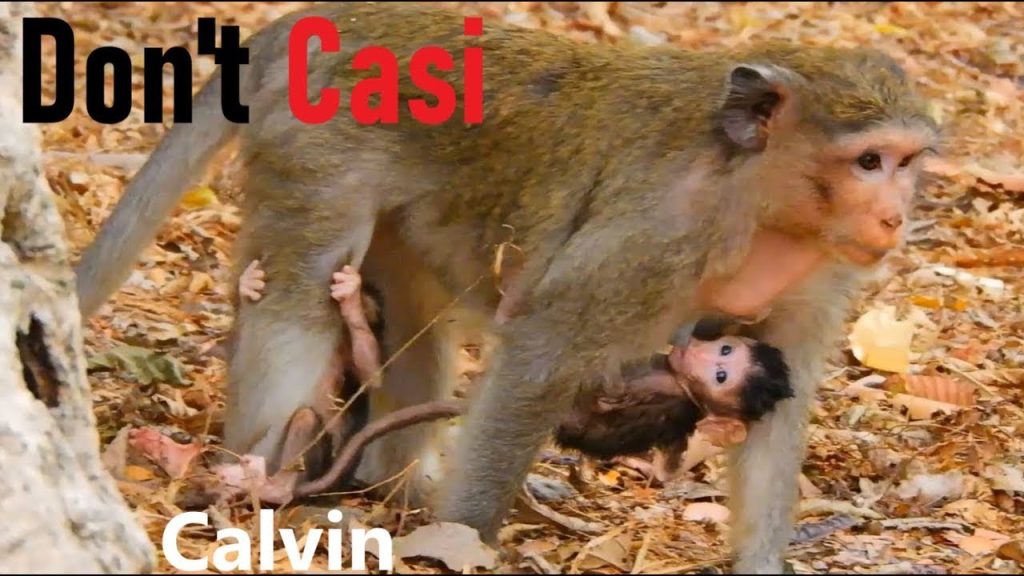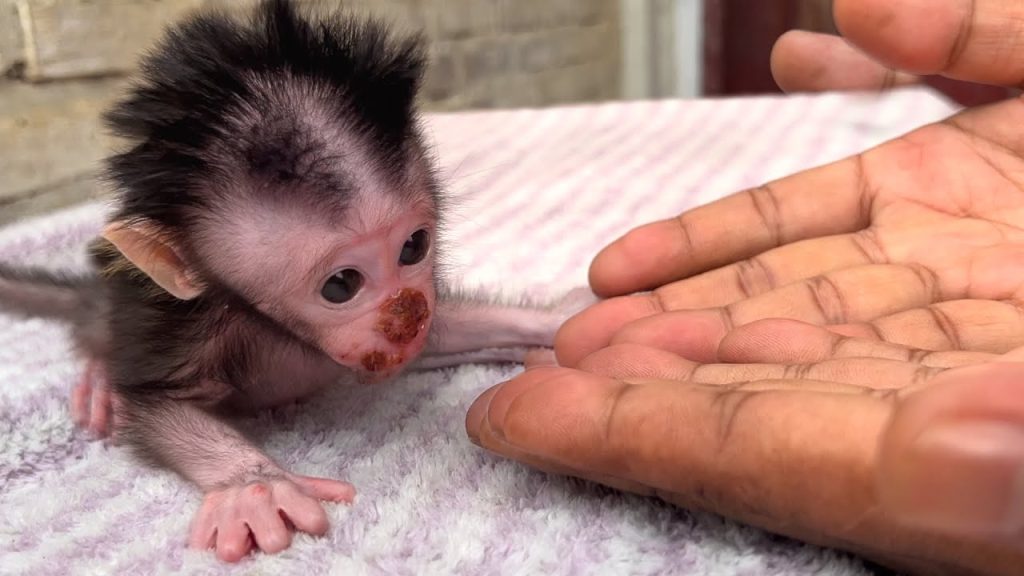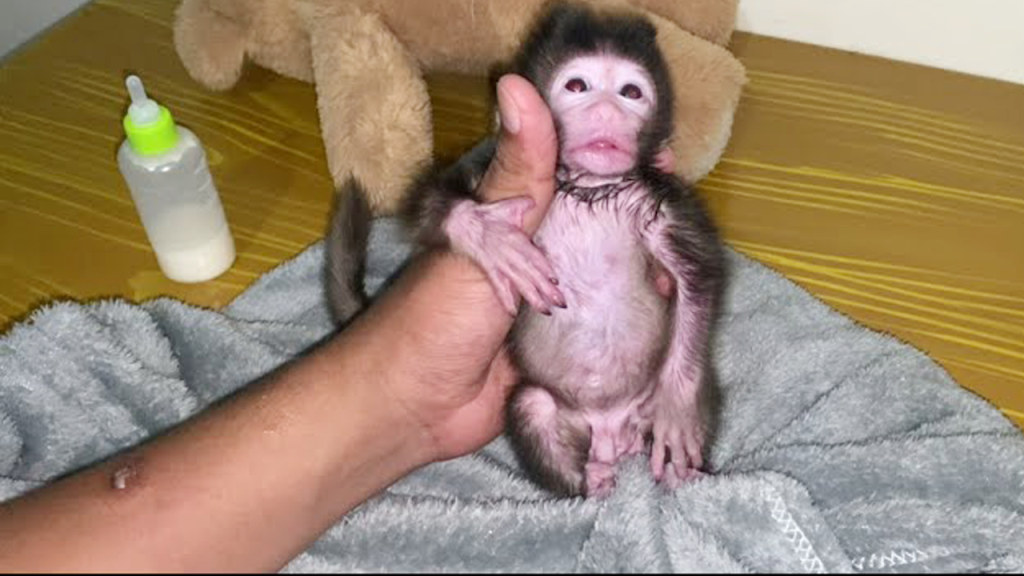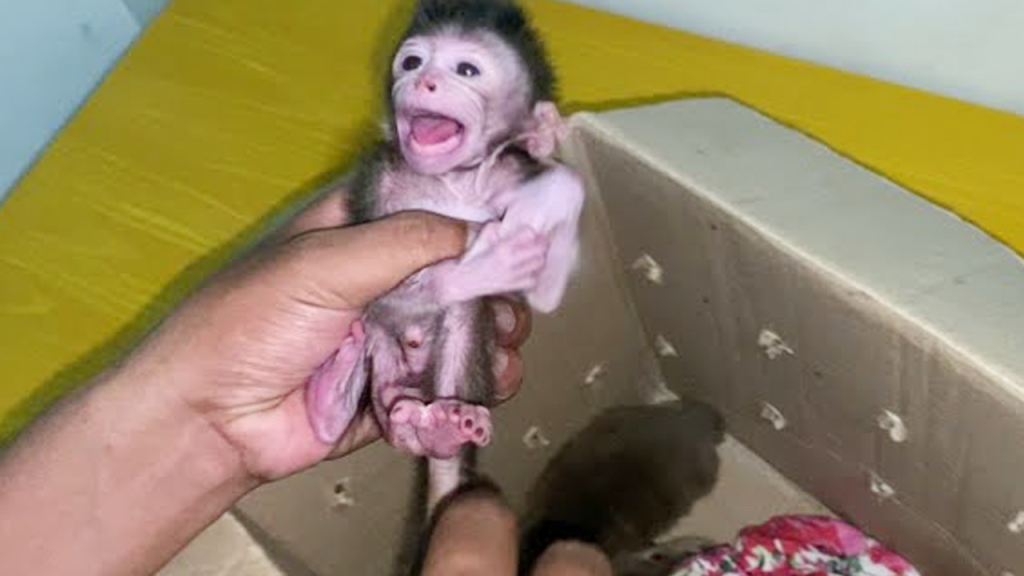
In the wild, survival is never simple. For some young monkeys, the greatest danger is not from predators or accidents, but from their own troop. Such was the heartbreaking case of baby Calvin, who had been abandoned and mistreated by his mother, Casi. His cries of hunger and weakness echoed through the forest, but every attempt to help him met with danger.
Calvin was fragile and thin, his body trembling as he tried to cling to branches too big for his tiny hands. His fur was ruffled, his eyes wide with exhaustion. Without milk and constant care, a newborn cannot last long. Yet whenever help came near, his mother appeared—not with affection, but with aggression.
Casi, known for her volatile nature, showed no tenderness toward her baby. She had already pushed him away, leaving him to cry alone. But when others, including the troop and even human rescuers, tried to approach, her mood shifted from rejection to hostility. She charged forward with bared teeth, growling furiously, warning everyone to stay away.
The cameraman, who had been observing the troop from a cautious distance, felt the urgency of Calvin’s condition. Every instinct told him to step closer, to lift the weak infant from the ground and give him a chance to live. But each step risked provoking Casi. Her eyes locked on him with fury, her teeth snapping in the air. She lunged more than once, so close that her breath and anger could be felt. One wrong move, and her bite could cause serious harm.
Meanwhile, Calvin’s cries grew softer. He curled into himself, too tired to call loudly for help. His little arms trembled, his tiny chest rising and falling with effort. The sight was unbearable, yet no one could intervene. The cameraman’s hands shook, torn between the instinct to rescue and the knowledge that pushing too close might endanger both him and the baby further.
Other troop members watched from the trees. Some stayed silent, others chattered nervously, but none dared interfere with Casi’s rage. The forest, usually full of movement and sound, seemed heavy with tension.
Time stretched painfully. Each attempt to approach was met with renewed aggression. The cameraman crouched low, speaking softly, hoping to calm Casi. But she circled protectively, not out of love, but out of possessiveness, unwilling to let anyone else near the baby she herself had abandoned.
At last, the only choice was to retreat. The cameraman stepped back, his heart heavy, the image of Calvin’s weak, pitiful body burned into his mind. The cries of the baby still rang in the distance, mixing with Casi’s sharp warnings. It was a scene of helplessness: a fragile life trapped between rejection and danger.
This heartbreaking moment revealed the cruel contradictions of nature. A mother who would not nurture, yet would not allow rescue. A baby desperate for milk and safety, yet left alone in weakness. And humans, ready to help, but bound by the risks of intervention.
Baby Calvin’s struggle was not just his own—it was a reminder of how fragile life is in the wild, and how sometimes even love and rescue cannot find a way past nature’s fiercest barriers.


